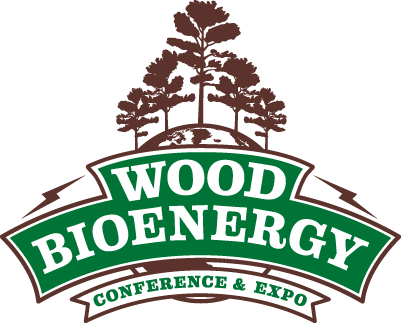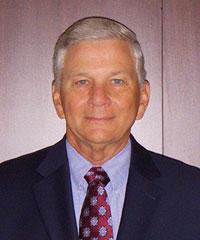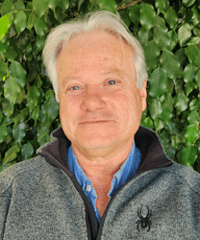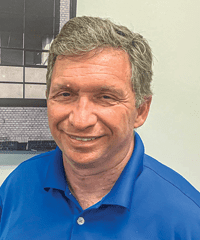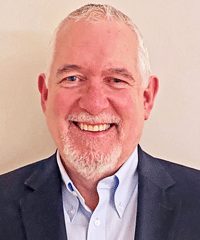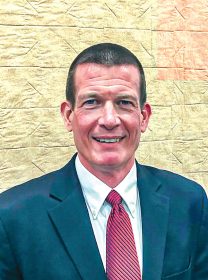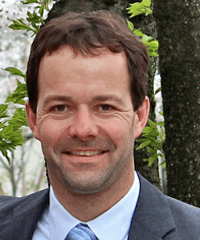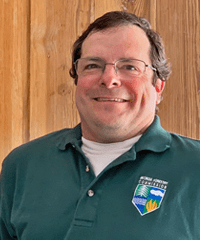Wood Bioenergy Conference & Expo
March 12-13, 2024
Omni Atlanta Hotel at Centennial Park
Atlanta, GA
The Educational Event for the Wood Bioenergy Industry, Including Wood Pellets, Biomass Power, Biofuels, In-Woods Chipping, Raw Material Procurement
CONTACT US
EXHIBITOR LIST
LATEST NEWS
2024 Presenters
VIEW FULL AGENDA
Harold Arnold
President
Fram Renewable Fuels
Wood Pellets: The Big Picture
How does the industry stand today? The effects of high inflation in a fixed contract world, worldwide demand, the coming 2026 end of legacy subsidies in Europe, the Japanese demand, new technology, and potential new markets that producers may convert to. From Harold’s point of view and guaranteed to be a fun and entertaining presentation.
Daniel Chastenais
Vice President Sales & Marketing
Tanguay Machinery
Optimize Your Mill Infeed with Electrical Knuckleboom Loaders
This presentation will feature electrical knuckleboom loaders and show examples of various OSB and sawmill installations providing and creating ideas to increase mill infeed, improve reliability and safety. Will also present the benefits of using electrical power in lieu of diesel to reduce cost and environmental benefits.
Scott Dane
Executive Director
American Loggers Council
Forest-Based Biomass Feedstock Costs
All too often biomass is an assumed byproduct of primary forest management operations with little to no cost or value. As a result, the biomass infrastructure within the logging sector is a small subset of the industry. This is due to the high capital investment in specialized equipment, limited markets, and minimal profit margins. Data will be presented that addresses these costs and price structure, along with real time production and transportation costs to frame the actual costs and subsequent price model necessary to ensure a stable and sustainable biomass supply chain. Biomass, biofuels, biochemicals and bioproducts have the greatest potential to transition the timber and forest products industries into renewable forest-based feedstock markets that can support renewable energy, reduce carbon emissions, displace fossil fuel consumption, address hazardous fuels which contribute to wildfires, and improve forest health. However, two issues need to be recognized, addressed, and resolved to ensure the development and success of new forest-based biomass feedstock enterprises. First, the biomass supply chain must be recognized as a value-added component of the “stump to pump” process and the cost of investment, acquisition, production, and transportation factored in for long-term sustainability. Second, the U.S. is the only developed country in the world to not recognize and embrace the carbon neutral and renewable aspects of forest-based biomass.The U.S. demonstrably has the biomass resource and the ability to process and convert the domestic feedstock into globally recognized renewable carbon neutral feedstock products. However, exporting biomass and wood pellets halfway around the world is highly questionable. The U.S. policy needs to match the accepted global science, properly interpret the RFS, and support domestic bioeconomy market development.
Matt Devitt
VP Aftermarket Department
LDX Solutions
Which APC Equipment Is Best for Your Needs & How to Ensure Compliance & Production Goals with It
Air Pollution Control (APC) equipment is required for compliance; however, there are many options depending on one’s needs. Additionally, improper maintenance and operation of the APC system will impact upstream equipment efficiency, production output, and compliance. This presentation will provide an overview of APC systems, explain their basic operating principles, and describe the best application for each. We will also discuss what is involved in keeping an APC system running at peak efficiency and attaining the site’s production and compliance goals.
Nicholas Dottino
CEO & Chairman of the
Management Board
Graanul Invest
Next Highway to Growth—SAF, Biofuels, BECCS
Sustainable biomass is poised to revolutionize future applications. As we explore the next growth avenues for biomass, it is clear that biomass will continue to shape the energy landscape, but entirely new sectors are waiting to be discovered. Which avenues will biomass explore next, and how do we ensure we’re on the right path? Join Graanul Invest CEO Nicholas Dottino as he explores the innovative possibilities of sustainable biomass in emerging sectors like Sustainable Aviation Fuel (SAF), advanced biofuels, and the transformative potential of BECCS (Bioenergy with Carbon Capture and Storage) in our journey to net-zero.
Taylor Fitts
Vice President, Communications & External Affairs
U.S. Industrial Pellet Association (USIPA)
Changing the Narrative on Biomass
Since its inception, the biomass industry has struggled to manage critics and effectively communicate its positive contributions for the climate and society. This presentation will offer perspective on how the industry can address and overcome this challenge to unlock its full potential.
Dane Floyd
CEO
Biomass Engineering
& Equipment
Projects That Predict the Future
Known for his grasp of the big picture for the wood bioenergy industry, Dane will talk about “Projects That Predict the Future,” pointing to the evolvement and development of several projects since the 2022 conference, their potential volumes and impacts to fiber allocation. He’ll speak on the incredible growth in the number and size of biochar projects, noting BE&E is involved in a number of these. What is driving it and will it last? He’ll touch on a fascinating project of wood expansion gases going directly to a turbine and genset without the typical (and expensive) boiler and steam train between them. He’ll review wood to metallurgical carbon projects that are finally becoming reality; as well as wood sugars projects. He’ll note that growth in woody biomass use in the ethanol industry is not just about cellulosic ethanol. He’ll explain why. He’ll look at the increased pace of the sale of small-scale CHP units—except in the U.S., while pointing to Austria to see the future. And he’ll touch on why the days of wood pellets to electrical energy are limited.
Wedig Graf Grote
VP Sales North America
STELA Drying Technology Corp.
Combined Innovation: Biochar Meets Low Temperature Belt Drying
This session will focus on how state-of-the-art pyrolysis technology creates excess heat, which is provided to an innovative low temperature belt dryer to prepare the feedstock used in the pyrolysis process. With the circle complete, the process creates high tech biochar for use as a soil amendment, in environmental remediation and for other beneficial uses.
Todd Havican
Sales Director
Fagus GreCon
Emerging Technologies in Spark Detection and Extinguishing
This presentation includes a review of new technology in spark detection and extinguishing, highlighting what this new technology does to better protect facilities.
Topics to be covered include
1) Types of ignition sources and types of detectors that should be used to detect these sources
2) New Detector – Intelligent DLD 1/9 spark detector and how this detector uniquely can detect the spectrum of ignition sources: mechanically generated sparks, burning material, hot particles and smoldering nests
3) Extinguishment Process – discussing the importance of spraying patterns, calculations of distance from detection and the amount of water to be used
4) New Intelligent Extinguishment Module (IEM) that helps predict maintenance to keep systems safer and more reliable – optimizing maintenance costs.
Andrew Johnson
Vice President
TSI
Biochar Production and Applications
What are the pathways to commercial production of biochar at scale? How do you control production so that biochar can be tailored to different applications? What are some of the emerging markets for biochar and how does the requirements of those markets affect the production process?
Alexander A. Koukoulas, Ph.D.
Director—Bioindustry
AFRY Management Consulting
Re-Navigating the Skies: Decarbonizing the Aviation Sector, the Outlook for Sustainable Aviation Fuels, and the Impact on Wood Demand
Decarbonizing hard-to-abate industries like the aviation sector poses unique hurdles due to their reliance on fossil fuels. In this presentation, we focus on the current state of Sustainable Aviation Fuels (SAFs) as a promising alternative, assessing their environmental impact and the potential to revolutionize the industry’s carbon footprint. Emphasis is placed on the intricate relationship between the aviation sector’s decarbonization and the demand for wood resources as a low-carbon feedstock in SAF production. We highlight the multifaceted challenges associated with scaling up SAF production, including technological, economic, and policy barriers. We also discuss opportunities for innovation and collaboration that can drive progress in delivering SAF production volumes at scale and discuss the complex landscape surrounding the transition to low-carbon alternatives in the aviation industry.
Will Marquis
Sales Manager U.S. & Canada
Pyreg, Inc.
Combined Innovation: Biochar Meets Low Temperature Belt Drying
This session will focus on how state-of-the-art pyrolysis technology creates excess heat, which is provided to an innovative low temperature belt dryer to prepare the feedstock used in the pyrolysis process. With the circle complete, the process creates high tech biochar for use as a soil amendment, in environmental remediation and for other beneficial uses.
Colin Miller
Partner & Managing Director
11Foundry
Return on Compliance
EUDR (European Union Deforestation Regulation) promises to be highly disruptive in the wood biomass energy sector. Still, companies within and outside the EU that can successfully navigate the data- and analysis-intensive requirements of the new regulation stand to differentiate themselves in the market in significant ways. Join Colin for an exploration of “Return on Compliance” and how companies can build on existing principles with new tools to discover new synergies.
Timo Müller
Business Development Director
SALMATEC
Current Pelleting Technology Trends
The pelleting industry is constantly evolving. While industrial biomass pellets are most relevant in North America, Europe focuses more on residential heating pellets. There is a lot that both production markets can learn from each other. This presentation will show current trends in the wood pelleting industry, focusing on the pretreatment of the raw material as well as the pelleting itself and finally the storage of pellets.
Paul Oesterreich
Senior VP Project Development
Strategic Biofuels
Converting Forestry Waste to Negative Carbon Footprint Transportation Fuels
Strategic Biofuels is developing a series of deeply negative carbon footprint plants in northern Louisiana that convert waste materials from managed and sustainable forests into renewable transportation fuels. The project incorporates conversion of plantation pine forest thinnings into the fuel, production of green power primarily from sawmill waste, capture of carbon dioxide emissions from those processes and its permanent geologic sequestration. Strategic Biofuels has been engaged in a cooperative program with the U.S. Forest Service together with input from the U.S. EPA on qualification of the wood feedstocks under the Renewable Fuel Standard (RFS), which has resulted in a practical guide for compliant feedstock identification. This effort has resulted in a significant increase in the amount of wood from plantation and natural timber stands that is qualified funder the RFS relative to the traditional views. Both RFS compliance and the status of the project will be discussed.
Wendy Owens
Founder & CEO
Hexas Biomass
One Fiber, Multiple Co-Products—How to Sugar Coat Energy Pellets
There is much more to biomass than just BTUs. This presentation will look at biomass, wood and non-wood, as sources of multiple co-products, like sugars and lignin, in addition to being sources for direct combustion fuel. To displace fossil fuel-based products it is necessary to borrow from the crude refining model and work to use the “whole biomass buffalo” to improve sustainability and return on investment. Driven by the bourgeoning bioeconomy, this model is a continuation of using timber for multiple applications and this presentation will review the advantages of the biochemical applications of biomass.
Tyler Player
President
Player Design Inc.
How We Did It: Creating A Greenfield Sugarcane Pellet Facility
Using the Delta Biofuels bagasse pellet plant in Jeanerette, Louisiana as an example, this talk discusses the ins and outs of the PDI approach to EPC projects, including key learnings and pain point resolutions.
Richard Poindexter
President
Search North America
Wood Products Employment Trends & How To Keep Your Employees Engaged
Key items that will be covered in the presentation include: Employment trends in the wood products industry. Job opportunities in the wood products industry. Why do workers leave? Why do workers stay?
David Porter
Regional Sales Manager
Georgia Ports Authority
Georgia Ports: All In for the Future
With $4.2B in improvements underway over the next decade, Georgia Ports continues its focus on infrastructure and engineering investments to create business opportunities for customers, business partners, communities and rural Georgians. The GPA is “all in” for future volumes, ensuring growth as a national gateway to empower Georgia-grown forest products and other commodities to compete stronger in world markets.
Dru Preston
Utilization Forester
Georgia Forestry
Commission
Timber Markets and Sustainability: Opportunities and Challenges for Georgia and the Southeast
Georgia is the #1 forestry state in the nation and the Southeast is one of the major timber producing regions not only in North America, but the world. The majority of timberland in the South is privately owned and strong, healthy markets for timber products incentivizes these landowners to keep their working forests as forests. There are challenges, however, as Georgia and the Southeast are fast growing areas of the country resulting in loss of timberland and forest fragmentation. This talk will provide an overview of current timber production and availability as well as the market situation in the Southeast, with an emphasis on Georgia. Challenges, such as recent pulp mill closures and opportunities like mass timber, bioenergy and others will be discussed. Timber availability and the need for more markets for traditional timber products and newer technologies will be discussed.
Dominic Romeo
Sales Engineer
CV Technology
Combustible Dust Hazards in a Bioenergy Process
How to determine where combustible dust fire/explosion hazards are located within the bioenergy process and how to address these hazards through a combination of prevention and mitigation solutions.
Seth Walker
Senior Manager, Strategy
Rayonier
Emerging Bioenergy Opportunities: Timber and Forestry Considerations
Exploring the role of forests and bioenergy in the U.S. energy transition, including new opportunities like Sustainable Aviation Fuels (SAF) and Biomass Energy with Carbon Capture and Storage (BECCS). Discussion from the lens of a forest landowner, including policy incentives, silvicultural regimes, and other considerations.
WOOD BIOENERGY 2024 AGENDA
TUESDAY, MARCH 12
EXHIBITORS/ATTENDEES BREAKFAST
(Grand Ballroom North)
7:30-8:25 a.m.
MORNING KEYNOTERS SESSION
(Rooms B-C)
8:30-8:35 a.m.
Welcoming Remarks and Keynoters Introduction
—Jessica Johnson, Managing Editor, Wood Bioenergy
8:40-9:05 a.m.
Wood Pellets: The Big Picture
—Harold Arnold, President, Fram Renewable Fuels
9:10-9:35 a.m.
Forest-Based Biomass Feedstock Costs
—Scott Dane, Executive Director, American Loggers Council
9:40-10:05 a.m.
Next Highway to Growth—SAF, Biofuels, BECCS
—Nicholas Dottino, CEO, Chairman of the Management Board, Graanul Invest
TIME OUT WITH EXHIBITORS
10:10-10:25 a.m.
MID-MORNING KEYNOTERS SESSION
(Rooms B-C)
10:30-10:35 a.m.
Remarks and Introductions
—Rich Donnell, Conference Co-Chairman, Editor-in-Chief, Wood Bioenergy
10:40-11:05 a.m.
Re-Navigating the Skies: Decarbonizing the Aviation Sector, the Outlook for Sustainable Aviation Fuels, and the Impact on Wood Demand
—Alexander Koukoulas, Director—Bioindustry, AFRY Management Consulting
11:10-11:35 a.m.
Converting Forestry Waste to Negative Carbon Footprint Transportation Fuels
—Paul Oesterreich, Senior VP Project Development, Strategic Biofuels
11:40 a.m. – 12:05 p.m.
Projects That Predict the Future
—Dane Floyd, CEO, Biomass Engineering & Equipment
EXHIBITORS/ATTENDEES LUNCH
(Grand Ballroom North)
12:10-1:20 p.m.
AFTERNOON KEYNOTERS SESSION
(Rooms B-C)
1:25-1:30 p.m.
Remarks and Introductions
—Dan Shell, Senior Editor, Wood Bioenergy
1:35-2:00 p.m.
How We Did It: Creating a Greenfield Sugarcane Pellet Facility
—Tyler Player, President, Player Design, Inc.
2:05-2:30 p.m.
One Fiber, Multiple Co-Products—How to Sugar Coat Energy Pellets
—Wendy Owens, Founder & CEO, Hexas Biomass
2:35-3:00 p.m.
Return on Compliance
—Colin Miller, Partner & Managing Director, 11Foundry
TIME OUT WITH EXHIBITORS
3:35-3:50 p.m.
MID-AFTERNOON KEYNOTERS SESSION
(Rooms B-C)
3:55-4:00 p.m.
Remarks and Introductions
—Jessica Johnson, Managing Editor, Wood Bioenergy
4:05-4:30 p.m.
Timber Markets and Sustainability Opportunities and Challenges for Georgia and the Southeast
—Druid Preston, Utilization Forester, Georgia Forestry Commission
4:05-4:30 p.m.
Georgia Ports: All In for the Future
—David Porter, Regional Sales Manager, Georgia Ports Authority
EXHIBITORS/ATTENDEES RECEPTION
(Grand Ballroom North)
5:00-7:00 p.m.
WEDNESDAY, MARCH 13
EXHIBITORS/ATTENDEES BREAKFAST
(Grand Ballroom North)
7:30-8:25 a.m.
MORNING KEYNOTERS SESSION
(Rooms B-C)
8:30-8:35 a.m.
Welcoming Remarks and Keynoters Introduction
—Fred Kurpiel, Conference Co-Chairman, President, Georgia Research Institute
8:40-9:05 a.m.
Emerging Bioenergy Opportunities: Timber and Forestry Considerations
—Seth Walker, Senior Manager, Strategy, Rayonier
9:10-9:35 a.m.
Changing the Narrative on Biomass
—Taylor Fitts, Vice President, Communications & External Affairs, U.S. Industrial Pellet Assn. (USIPA)
9:40-10:05 a.m.
Biochar Production and Applications
—Andrew Johnson, Vice President, TSI
TIME OUT WITH EXHIBITORS
10:10-10:30 a.m.
TECHNICAL SESSIONS
(ROOM A)
10:30-11:00 a.m.
Wood Products Employment Trends & How To Keep Your Employees Engaged
—Richard Poindexter, President, Search North America
11:05-11:30 a.m.
Optimize Your Mill Infeed with Electrical Knuckleboom Loaders
—Daniel Chastenais, Vice President Sales & Marketing, Tanguay Machinery
(ROOM B)
10:35-11:00 a.m.
Current Pelleting Technology Trends
—Timo Müller, Business Development Director, SALMATEC
11:05-11:50 a.m.
Combined Innovation: Biochar Meets Low Temperature Belt Drying
—Wedig Graf Grote, VP Sales North America, STELA Drying Technology
—Will Marquis, Sales Manager U.S. & Canada, Pyreg, Inc.
(ROOM C)
10:35-11:00 a.m.
Which APC Equipment Is Best for Your Needs & How to Ensure Compliance & Production Goals with It
—Matt Devitt, VP Aftermarket Department, LDX Solutions
11:05-11:30 a.m.
Emerging Technologies in Spark Detection and Extinguishing
—Todd Havican, Sales Director, Fagus GreCon
11:35-12:00 p.m.
Combustible Dust Hazards in a Bioenergy Process
—Dominic Romeo, Sales Engineer, CV Technology
CASH PRIZE DRAWING
(Must Be Present To Win)
*Additional speakers and adjustments to these speaking times and locations are possible.
BIO 2024 News
Wrapping It Up: Wood Bio Conference
This is the third of three parts in the coverage of the Wood Bioenergy Conference & Expo held March 29-30, 2022 at the Omni Hotel at CNN Center and hosted by Wood Bioenergy magazine. Part one in the June issue focused on the keynote talks from producer and consultant personnel. Part two in the August issue highlighted several presentations delivered by representatives of equipment and technologies companies. The next Wood Bioenergy Conference & Expo will be held March 12-13, 2024 at the Omni Hotel at CNN Center in Atlanta, Ga…
